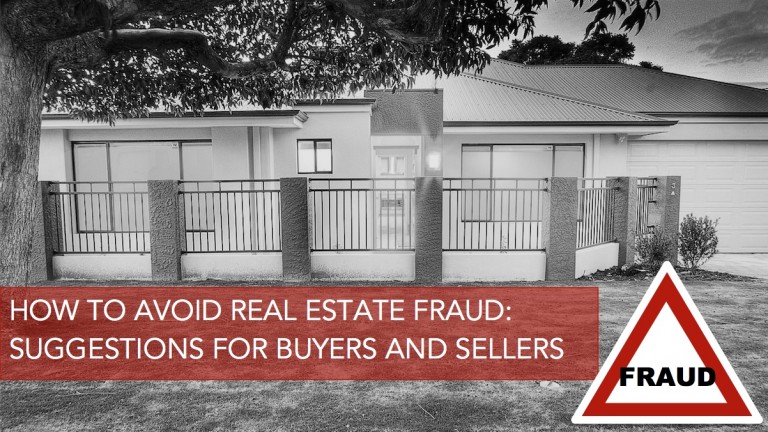Updated on January 27, 2022
Fraudulently Selling a House
Our Los Angeles real estate lawyers have seen all sorts of real estate scams over the years that result in litigation. Through experience dealing with real estate fraud and unscrupulous buyers and sellers we have a few tips to offer:
Suggestions If You Are A Buyer
Sellers engage in many types of scams. One of the most basic types of scams is attempting to sell property that the seller does not own or that has undisclosed encumbrances or liens. For a buyer, one of the most important things to examine during a purchase and sale transaction is the preliminary title report.
The title report gives a clear picture of recorded title and the type of protection you can expect the title company to insure you against. Typically, a commercial bank will not lend purchase money without clear title but if you are buying the property with cash you will have to examine the title report for yourself because the bank will not scrutinize it. The key is to look at the list of exceptions to coverage as those show the liens that are on title to the property.
Best Buyer Protection
Buyers should also be wary of inadequate disclosures. Many unscrupulous sellers may have cheaply flipped the property or have a distressed property that they are not fully explaining to the buyer all of the problems the property may have. The buyer’s best protection against inadequate disclosures is to do a thorough investigation of the property.
Investigation of the Property Before Invest
This investigation should include several different types of professional inspectors that can examine the property with a figurative microscope to discover undisclosed defects. While these inspections can add cost to the transaction the cost is relatively minor when compared against the cost of dealing with a major problem.
Buyers should also be wary of deal that involves unusual terms which typically take place in off-market transactions. These types of off-market transactions occur when the property is not listed on a Multiple Listing Service and instead is offered for sale by owner or through a private seller. Many problems can arise in these situations as often times these off-market transactions are not reduced to writing, can be among family members and can have unusual terms that may not be enforceable.
The unusual terms can lead to litigation and many disputes down the line. We recommend that any time the buyer is involved in an off-market transaction that they consult an attorney. For most people, buying a house is the largest financial expenditure of money they will undertake in their lifetime. Given this fact, we recommend that an attorney be involved to help protect the buyer against scams and to scrutinize the entire sale agreement and the terms contained within it.
Involving The Escrow
Real estate scams where the buyer scams the seller are less common. For the seller, the main concern when selling property is making sure they get paid and that the funds are good funds. In order to ensure payment, most real estate transactions involve the use of an escrow company. Escrow is set up to make sure that the seller does not deed away the property until they receive good funds. Therefore, the likelihood of a scam taking place typically goes up exponentially when there is no escrow.
Also Read – How An Escrow Relates to Buying a Home – Can a Home Seller or Buyer Back Out of Escrow Contract in California? – Things to Know Before Buying a House in California
The most common scam we see is where buyers get overly aggressive after entering escrow. For example, we recently represented an elderly lady who was selling her home to move into an assisted living facility. The seller and buyer agreed on a sales price and then entered escrow. Upon entering escrow the buyer immediately demanded a $70,000 reduction in the purchase price to make repairs. The seller refused to reduce the price and was under no obligation to do so.
Despite this fact, the buyer sued the seller and recorded a notice of pendency of action on the property to prevent the seller from selling the property to another buyer. By recording the notice of pendency of action, the buyer effectively locked up the property and made it unmarketable thereby forcing the seller to have to deal with the buyer. This was a scam because the buyer had no basis for forcing the seller to sell the property to the buyer at a discounted price.
But, the buyer knew by recording the improper notice of pendency of action the buyer could force the seller to deal with him, could delay the sale of the property for a long time and could force the seller to spend additional funds on the carrying cost of the property and legal fees. This type of tactic, recording a notice of pendency of action in order to renegotiate sale terms even after the parties reach an agreement is unfortunately very common. The best things a seller can do to avoid this situation is to:
- Know who your buyer is and do your due diligence on your buyer before accepting an offer,
- Consider all factors in deciding who to sell your property to not just money, and
- When problems arise go right to a lawyer.
Contact one of our Los Angeles Real Estate Attorney to inquire about a free consultation regarding a problem you are having with real estate fraud or a real estate scam. You can reach us at (310) 954-1877, info@schorrlaw.test2.redblink.net, or you can also use our handy Contact Form to send us a message.
